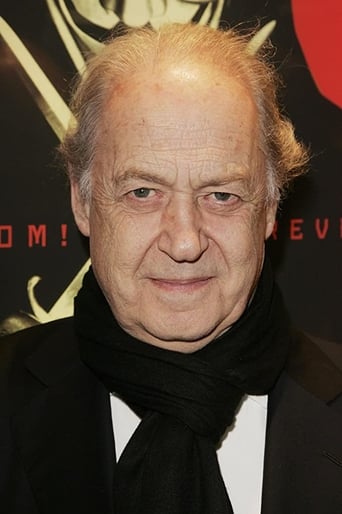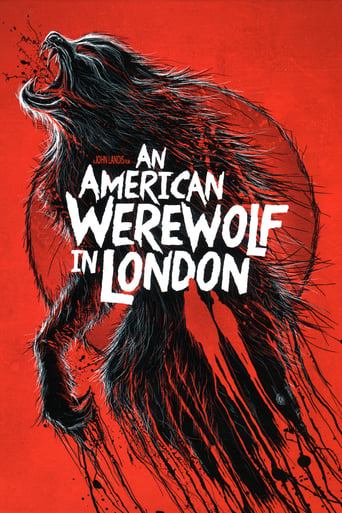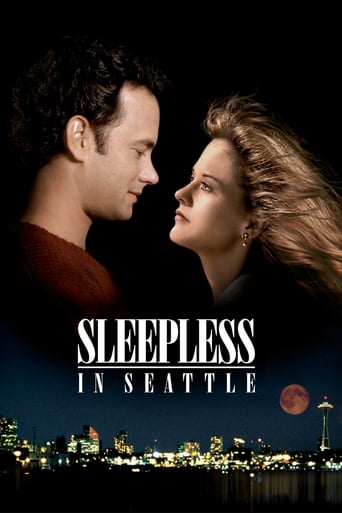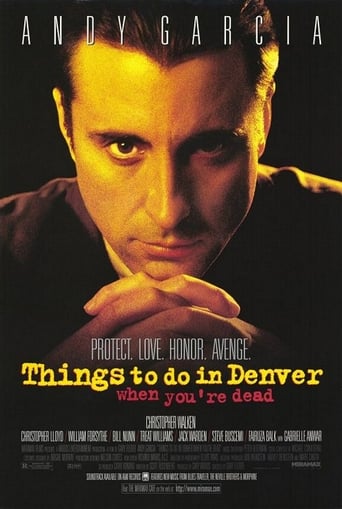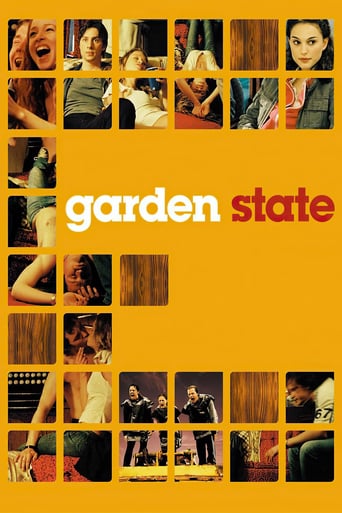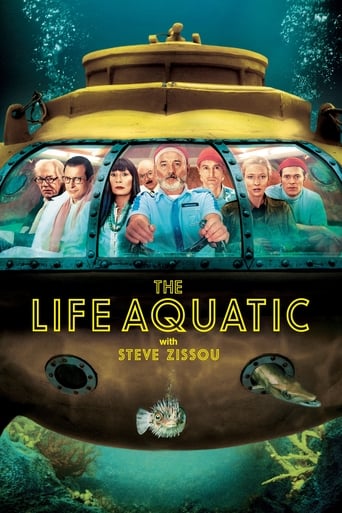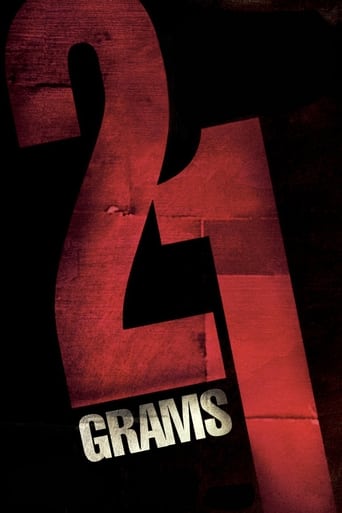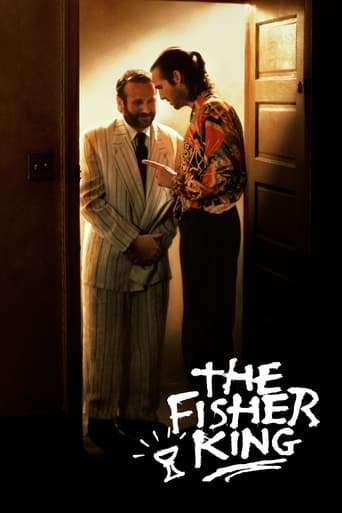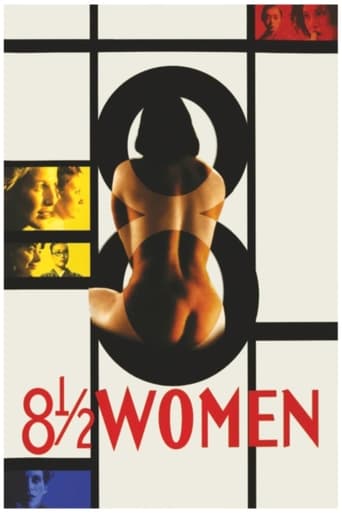
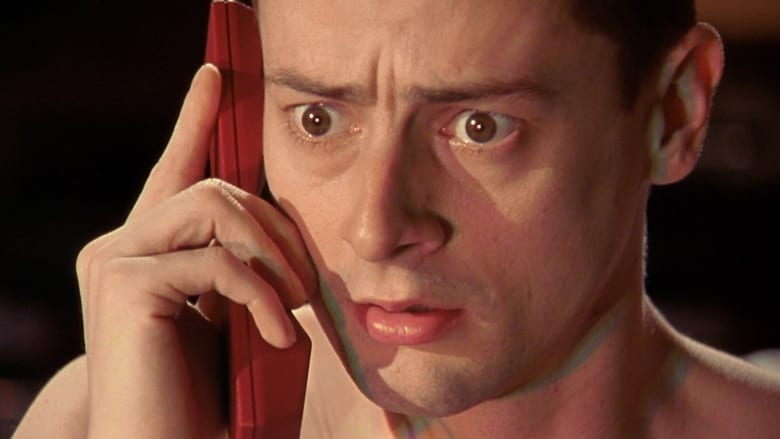
8 ½ Women (1999)
After the death of his wife, wealthy businessman Philip Emmenthal and his son Storey open their own private harem in their family residence in Geneva (they get the idea while watching Federico Fellini's 8½ and after Storey is "given" a woman, Simato (Inoh), to waive her pachinko debts). They sign one-year contracts with eight (and a half) women to this effect. The women each have a gimmick (one is a nun, another a kabuki performer, etc.). Philip soon becomes dominated by his favourite of the concubines, Palmira, who has no interest in Storey as a lover, despite what their contract might stipulate. Philip dies, the concubines' contracts expire, and Storey is left alone with Giulietta (the titular "½", played by Fujiwara) and of course the money and the houses.
Watch Trailer
Cast


Similar titles
Reviews
I am giving this pretentious piece of garbage a 1 simply because i don't believe there is a worse movie in the world.I hate this movie, i hate the acting, dialog, setting, writing and directing. I hope everyone that was involved in this movie burns and rots in the darkest circle of hell.Damn this disgusting waste of time.I pray every day that this movie is just a figment of my imagination. i pray that i dreamt the movie, and that i will never have to see it at my local video store again.BURN IN HELL
Despite being hissed at Cannes this film is still well worth seeing. I purchased the DVD and the more I watch it the better I like it. For a start, as with all Greenaway's work since The Falls, the photography is ravishing. I don't think anyone makes films which look better.What few have picked up on is that (as well as an attempt to pick up Fellini's 8 1/2-ball and run with it), this is almost a remake of "A Zed and Two Noughts". Both films study bizarre responses to bereavement. both films play on doubling, in this case a father and son rather than two brothers. Both films touch on bestiality (with animals called Hortense!), gynecology, sex with amputees, a menagerie (in this case of women rather than animals), prostitution, uses of light, storytelling, and the colours black and white.Where that film referenced painting, this references performance in many guises - cinema, kabuki, cross-dressing, opera, television, prostitution, as well as painting.Contrary to at least one other user comment, there is no sexual intercourse shown in the film, although there is a quantity of nudity. It's very odd, if perhaps unsurprising, that this film has been sold as a sexy movie. SexIST? Well, confusing an ironic depiction of men's sexual fantasies with a reduction of women to the level of fantasy is 'politically correct' laziness at best. And as with most of Greenaway's films, the women are the winners in the end.One reason this is harder work than the earlier film is the lack of Michael Nyman's ravishing music. I'm not sure why Greenaway stopped working with Nyman; possibly he felt he was stuck in a rut - perhaps he was nettled by charges that any old footage looked like Greenaway if you played Nyman's music behind it. Either way, he's yet to arrive at a truly satisfactory alternative. Here we have "Slow Boat to China" sung a capella by the two leads, rather after the manner of Morecambe and Wise. It's quite funny, but it's not the marriage of sound and image of earlier films.The extent to which Philip Emmenthal represents Greenaway himself is perhaps worth considering. A character makes reference to Fellini having Mastroianni make love to all the women Fellini couldn't, and asks whether all directors make films to fulfil their own sexual fantasies. Emmenthal is notably the same age as Greenaway.He may not be sweeping the art-house scene before him these days (in fact there's not much of an art-house scene left these days), but in the end, even below-par Greenaway is better than 99% of directors can even aspire to.
I've heard and read much criticism about Greenaway's homage to Fellini, "8 1/2 Women", and have found it both predictable and amusing. Every Greenaway film evokes raw, often disturbing emotions in the viewer-- this is nothing new, yet is treated like a revelation with every new release. And some fans and critics of Greenaway seem to be keeping a running score of his visual/emotional offenses, even tending to get irate when he fails to shock or disturb on the level of his other films. But again, this is nothing new.So I'm humored at the reaction to "8 1/2 Women", for it is as visually stunning/arousing/disturbing as many of its predecessors while it is actually quite tame by Greenaway's standards (for one, the cannibalism/mutilation theme is missing). Yet we have those who are disappointed at the lack of shock or those who are too easily shocked, and Greenaway has long proven that you can't make everyone happy in filmmaking and, honestly, he really doesn't care what you think. You only have to watch.He is really very similar to Fellini in this way as he is in so many others. I'm no great fan of Fellini's, not as much as I am of his successors anyway, but the parallels are apparent. Fellini worked in absurdities the way Greenaway works in the dire or some artists work in oils. He made the most ridiculous scenarios seem beautiful, artful... even sexy. He imprinted upon film as art and future filmmakers that strange and disjointed often equals desirable, and Greenaway clearly took this to heart. But like Fellini, Greenaway films come with an automatic caveat: You will see things that we are taught to abhor and despise in our society, you will have to think about things from which humans naturally shrink away and you will bear witness to the possibility that great beauty can be found in the mire if you can manage to look long enough. Greenaway's "awfulness" and attempt to disgust you is his medium and his brilliance (and his great joke on you), and if this doesn't sit well with you then you shouldn't watch Greenaway. It's as simple as that.So, that being said - "8 1/2 Women". Not Greenaway's best, but certainly not his worst. Again we get to share in his great love of the human form in all its beauty and imperfection-- both of body and of character. But this is his most lighthearted attempt and is thoroughly enjoyable for that alone. The relationship between the widower Philip Emmenthal and his earthshakingly prattish son Storey is genuinely touching, as are their relationships with the various women they bring into their lives to replace their lost wife/lover/mother. Equally moving is the fact that these women become much more than mere objects or possessions in their house, but rather individual character studies on the strength of femininity and the power that women have over men. While Fellini's "8 1/2" may have been semi-autobiographical, here Greenaway seems to have tapped into the fantasies and realities of the relationships between men and women everywhere, focusing on the fact that neither are as simple as they seem. And that while mere sex will inevitably falter in the face of deeper love, such meaningful relationships are elusive and fleeting. He doesn't tap very far through, which is this film's only failing; the relationships and characters, some of whom are downright silly, are often taken at surface value and the themes, especially regarding sexual dynamics, are nothing new to cinema.Nevertheless, "8 1/2 Women" is a lovely, surprisingly sincere and often humorous account of men, women, family, self-identity and the rewards of living out your fantasies along with their tempering costs. Highly recommended for anyone who has been scared away by Greenaway's other films or for anyone else who truly enjoys the beauty found in strong women and faltering men.
Fans of Peter Greenaway will not be disappointed. This film seems to be following an on-going trend of a creating more subtle approach to subjects of sexualities. If Greenaway is maturing, it's by leaving even more unsaid about the various subjects he chooses for study. This may result in works which are even more inaccessible than previous works like "The Cook..." and "Prospero's Books". Patience is the key with Greenaway, and this film certainly demands it.


